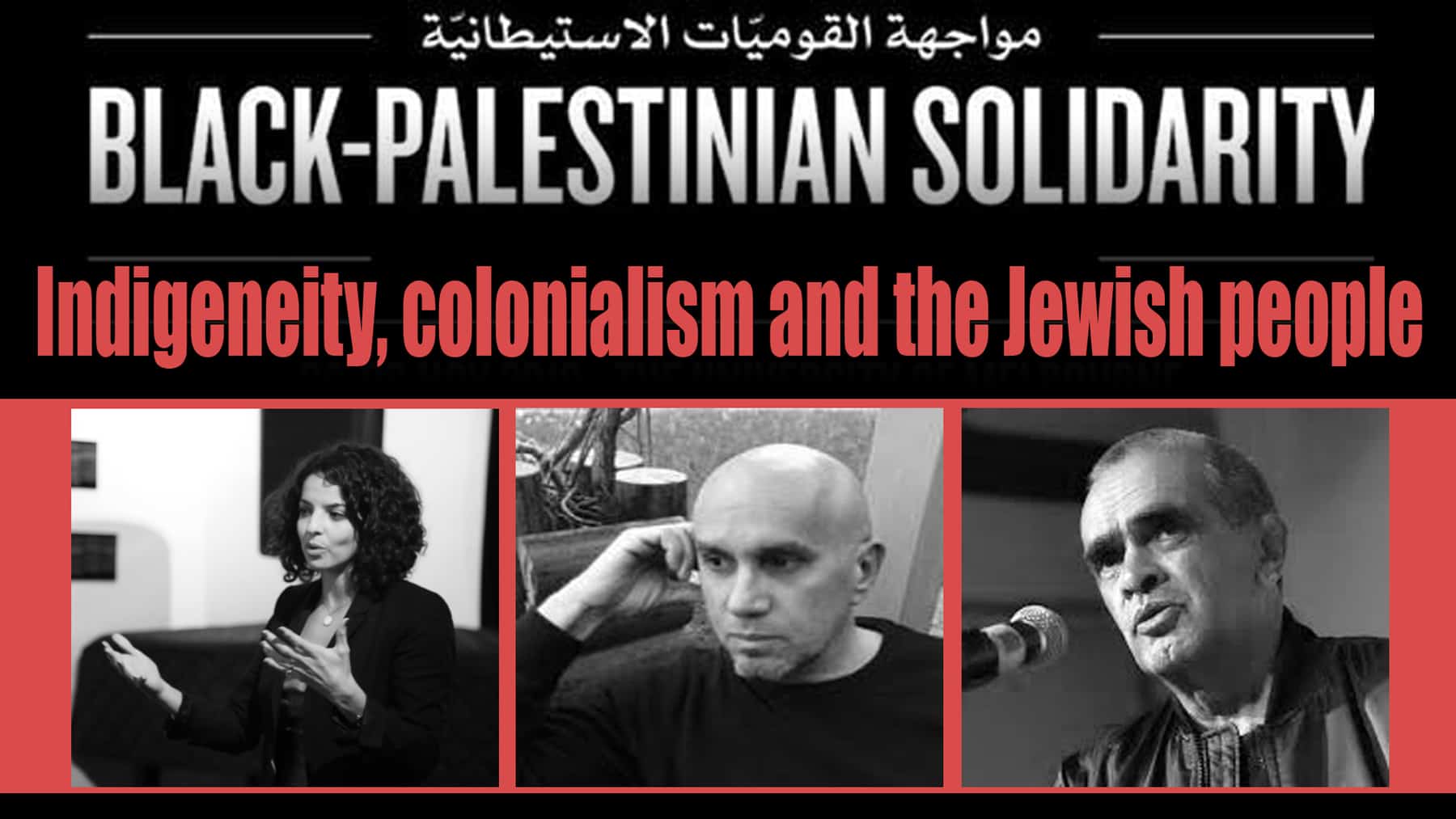
This panel event is organised by the Australian Jewish Democratic Society in partnership with the Black Palestinian Solidarity conference.
The event seeks to examine Israel through a framework of settler-colonialism in order to unpack the socio-political characteristics of the Israeli nation-state, and to then use this knowledge to look at models and forms of resistance and decolonisation. This event will consider the particularities of colonisation, and articulate how settler-colonialism in Australia can inform our understanding of Israel/Palestine.
The panel will look at the long held historical connections of the Jewish people to the land of Israel, the ways this has found expression in various Jewish communities, in what ways is this reflective or not of indigeneity, and the ways that Israel has appropriated narratives of biblical and religious relationships to the land in colonial state building practices.
The venue is wheelchair accessible with ample parking and just on the 3/3a tram line.
For further questions regarding accessibility please contact Yael at [email protected]
For details on the Black Palestinian Solidarity Conference go to:
https://www.eventbrite.com.au/e/black-palestinian-solidarity-conference-melbourne-2019-tickets-70733047449
SPEAKERS
Gary Foley was born in Grafton (1950), northern NSW of Gumbainggir descent. Expelled from school aged 15, Foley came to Sydney as an apprentice draughtsperson. Since then he has been at the centre of major political activities including the: Springbok tour demonstrations (1971); Tent Embassy in Canberra (1972); Commonwealth Games protest (1982); protests during the bicentennial celebrations (1988).
Foley was involved in the establishment of the first Aboriginal self-help and survival organisations including: Redfern’s Aboriginal Legal Service; Aboriginal Health Service in Melbourne; National Black Theatre.
Nadia Ben-Youssef is a human rights lawyer and the Advocacy Director at the Center for Constitutional Rights, a US-based legal and advocacy organization working with social movements to dismantle racism, patriarchy, economic oppression and abusive state practices. Nadia leads the advocacy team’s cultural and political interventions to shift public narrative and policy towards justice and collective liberation. She has expertise in international human rights, and extensive experience working with impacted communities to develop US advocacy strategies.
Her work often centers at the intersection of art and advocacy, and she curates exhibits and artistic programming that document key human rights concerns, celebrate social movements, and allow creatives the space to chart the future.
Prior to coming to the Center for Constitutional Rights, she co-founded the Adalah Justice Project (AJP), a U.S.-based Palestinian advocacy organization that works to transform American discourse and policy on Palestine/Israel. AJP was an outgrowth of nearly a decade of work with Adalah – The Legal Center for Arab Minority Rights in Israel. Together with her family, Nadia is currently documenting the life of her grandfather Salah Ben Youssef, a Third World revolutionary and freedom fighter of Tunisia’s independence movement who was assassinated in 1961. She is a member of the New York State Bar, and holds a B.A. in Sociology from Princeton University, and a J.D. from Boston College Law School.
Marcelo Svirsky is a Senior Lecturer at the School for Humanities and Social Inquiry, University of Wollongong. He researches settler-colonial societies particularly Israel Palestine and focuses on questions of social transformation and decolonisation. He has published several articles in the journals Cultural Politics, Interventions, Subjectivity, Intercultural Education, Deleuze and Guattari Studies, and Settler Colonial Studies among others, and various books and edited collections: Deleuze and Political Activism (Edinburgh University Press, 2010); Arab-Jewish Activism in Israel-Palestine (Routledge, 2012); Agamben and Colonialism (with Simone Bignall, Edinburgh University Press, 2012); Collaborative Struggles in Australia and Israel-Palestine (2014); After Israel: Towards Cultural Transformation (Zed Books, 2014), and he has recently co-authored with Ronnen Ben-Arie From Shared Life to Co-Resistance in Historic Palestine (Rowman and Littlefield International, 2017).
Moderated by Vanessa Barolsky
Vanessa Barolsky is an executive committee member of the AJDS and an associate research fellow at the Alfred Deakin Institute for Citizenship and Globalisation, Deakin University. She works across several disciplinary areas including sociology, anthropology and criminology to tackle questions related to social conflict and its transformation. Much of her work has been conducted in the South African context but has global applicability. This includes critical engagements with social cohesion, truth and reconciliation, as well as political and criminal violence and terrorism. She has also conducted research on issues related to the role of law in society and its contested relationship to social order and understandings of justice.
![]()
This event is being held on the land of the Kulin Nations, who never ceded sovereignty to their land, and who continue to struggle for justice today.
On indigeneity, colonialism and the Jewish people

